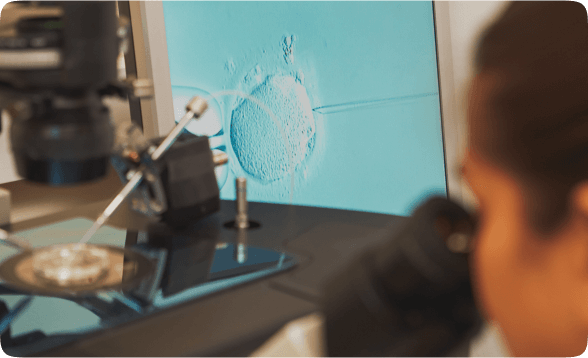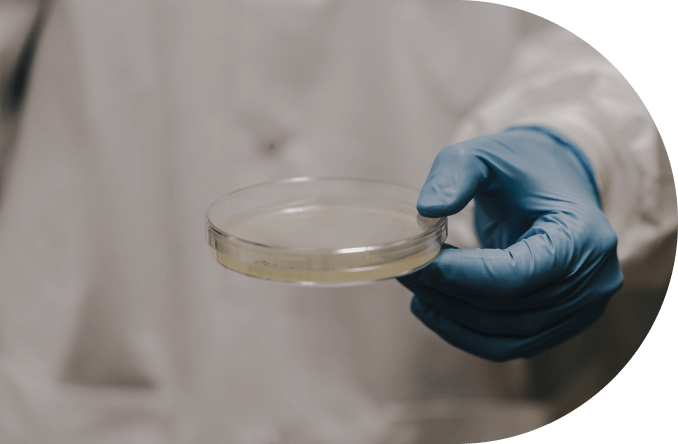Fertilization & Culturing
During this phase, the clinic’s experienced embryologist team will bring together the eggs and sperm to create and develop the best embryos possible.

Making Your Decision
Prior to your egg retrieval, you will discuss your treatment plan with your provider. Together, you will determine how many eggs will be fertilized and which fertilization approach will be used. Eggs can be frozen without fertilization, but are more fragile to the freeze and thaw process than embryos.
Fertilizing the Egg
Once the egg is retrieved (or thawed, if frozen) and the sperm sample is prepared, it’s time for fertilization. In most cases, we perform Intracytoplasmic sperm Injection (ICSI). ICSI is a technique to inject a single sperm into each egg.
This yields higher fertilization rates and lower abnormal embryo rates and can even be performed with poor quality sperm. For those that prefer it, traditional fertilization can be performed as well by placing the egg and sperm together in a special dish.

Fertilization Tips
Sperm are selected based on morphology (physical condition) as well as motility (swimming ability) individually by embryologists before ICSI
If immature eggs (GV/MI) do not mature to MII by Day 1, they are discarded as their quality will be far too low to produce results feasibly.
Some abnormally fertilized embryos can form normal blastocysts and should be cultured to Day 5 and PGT tested; Day 3 cryo not recommended
ICSI is the process of injecting individual sperm directly into the egg using a specialized glass needle on an inverted microscope to achieve fertilization
The markers (pronuclei) we use to determine fertilization can disappear, which is why some Day 1 embryos are “unconfirmed”; we won’t be able to tell if they are fertilized until our Day 3 check

Egg and Embryo Development
In our Embryology Lab, we treat sperm, eggs, and embryos with the utmost care. We meticulously identify, process, and evaluate each one in a controlled setting to achieve optimal outcomes. After retrieving the egg, it spends only four hours in the incubator before fertilization takes place. On that same day, our knowledgeable embryologists inform you of the number of eggs collected and collaborate with you to develop a personalized embryo culture plan that caters to your unique requirements. Count on us to deliver outstanding service and assistance during your fertility process.
Culturing the Embryo
The embryologist then carefully lets your embryos develop in incubators, typically until 5-7 days after fertilization though some may be cultured until day 3. During this time, the embryologists closely monitor the embryos for signs of healthy growth and development.
Though not all embryos will reach this stage, at the end of this process, we will share quality grades for the embryos and be able to identify the embryos ready for biopsy.
Notes on Culturing and
Embryo Quality
- Embryo grades are on a spectrum. Embryos with the same grade are not necessarily the same quality of embryo.
- Day 3 grades are not a completely reliable indicator of future development
- A compacting embryo on Day 3 has started the process of becoming a blastocyst and is an indicator of good quality
- Most embryos arrest (stop growing) on Day 3 as the transition from Day 3 to 4 is a difficult developmental checkpoint.
- An arrested embryo will never restart development.
- Freezing an embryo on Day 3 will not save it from arresting at a later date if that is the embryo’s destiny.
- We determine if an embryo is arrested based on developmental progress. Even if development is slow, if it has progressed from the previous day it is not arrested.
- Arresting of embryos at or before this stage is more attributed to egg quality.
- Very slowly developing embryos should not be frozen on Day 3 as their chance of arresting is too high to recommend transferring.


